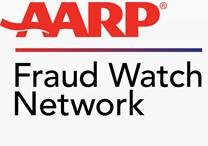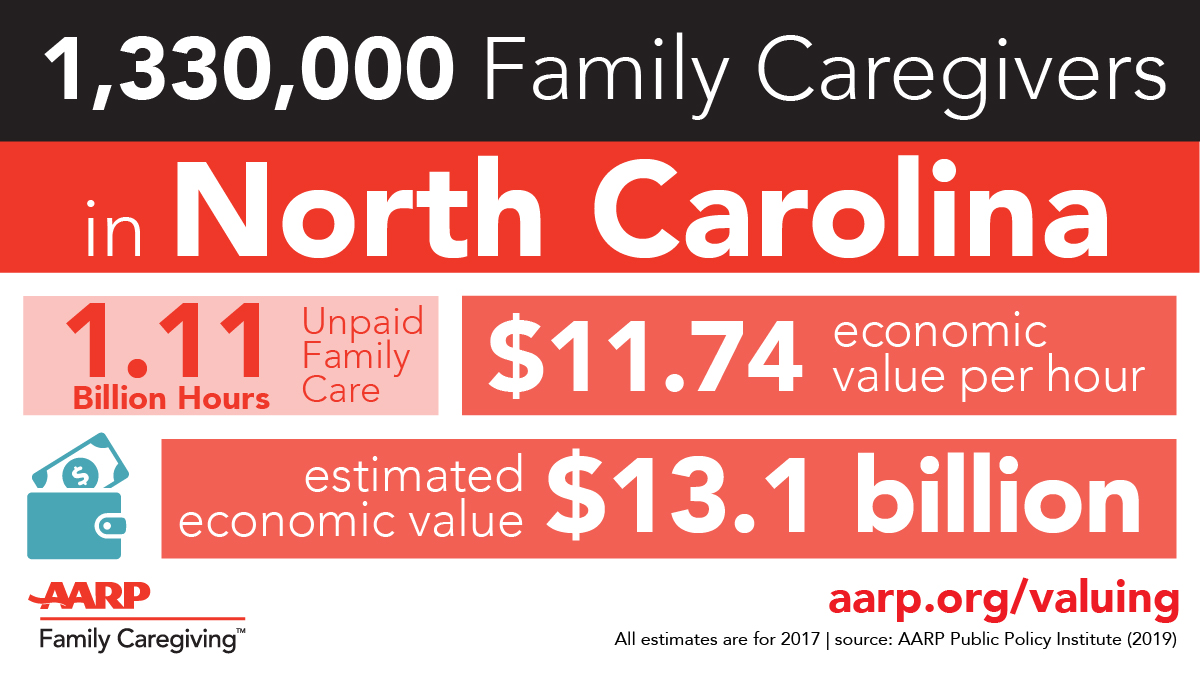AARP Hearing Center
During this critical election and Census year, AARP is working harder than ever to help people save more for retirement, more easily care for their loved ones, and make their homes and communities lifelong ones.
When it comes to this year’s election, so much is at stake. In addition to the Presidential race, here in North Carolina, there are 13 House races and one Senate race. State contests also include State House and Senate seats, as well as state executive offices.

The Power of Older Voters
A new survey by The Harris Poll on behalf of AARP reveals the priorities and concerns of a critical voting demographic that could determine the outcome of the 2020 presidential election: women ages 50 and older.
The survey, conducted online during November 2019, includes a number of valuable insights.
On Voting
Nearly all women ages 50 and older (95%) say they are likely to vote in the November 2020 election, but 7 in 10 (69%) haven’t decided who they’ll vote for.
And if the election were held today, 44% of women voters ages 50 and older who consider themselves Independents aren’t sure who they would vote for.
The survey found healthcare to be the leading national issue for older women voters.
Many older women continue to struggle with the cost of healthcare, and it is their top-of-mind issue as they go to the polls.
- Nearly 3 in 10 have had to skip medical care because it was too expensive.
- Nearly 4 in 10 cannot afford to pay for their healthcare.
AARP North Carolina is not only working to make this the election one where “she is the difference,” but one where older voters will decide the outcome. That is why we are putting a lot of time and
attention into connecting our members with the candidates so you can learn much more about how they will address issues most important to older women and men.
Helping protect your hard earned money

This month, public hearings begin on rate hike requests by Duke Carolinas. In February, hearings commence for Duke Progress. If the NC Utilities Commission agrees to the company’s request, residential customers of Duke Carolinas could pay at least 6.7 percent more and Duke Progress, 14.3 percent more.
AARP members in the past have been instrumental in challenging the company’s spending plan that puts too much burden on limited income Tar Heels and fixed income older adults. A steady outcry from AARP members helped reduce the amount of previous increases and we need you again.
AARP is concerned about the amount of increase the company is asking for that exceeds any source of income for fixed-income residents, a rate of return above what AARP sees in other states, and the company "gold plating" its grid improvement plan by not including those costs in its requests to the Utilities Commission instead, asking customers for pay for the upgrades plus interest.
AARP urges you to attend public hearings near you, or to send in your comments directly to the Utilities Commission at statements@ncuc.net
Don't Discount the Value of Savings
When it comes to the money we earn, savings is essential. For the past few years, AARP has been working to help boost the retirement savings of North Carolina workers. Although automatic payroll deductions for retirement savings is the easiest way to save, about half of the private sector workers in the state don’t have access to an employer-provided savings option.
In 2019, an important study bill was passed, the NC Small Business Retirement Plan, where a select committee of lawmakers, industry experts and others will report back to the General Assembly no later than March 31, on their recommended best path forward to help small businesses offer workers retirement savings plans. Creating a “society of savers,” will not only help Tar Heels be better prepared for the financial needs of retirement, it will save public assistance programs like Medicaid hundreds of millions of dollars.
AARP North Carolina salutes the 2019 AARP Super Savers, Senator Bill Rabon and Representative Bobby Hanig of the Coast, as well as Representatives Stephen Ross and Jon Hardister of the Triad who worked hard alongside with AARP to educate other members of the General Assembly about the need to help people save more of what they earn.
Fraud Watch Network
I would be remiss to not say that as important as savings are, we need to protect our savings and income from fraud and scams. Older North Carolinians continue to be victimized by fraud and identity theft, so AARP and partners from the NC Senior Fraud Taskforce will be working overtime this year to help you prevent, spot and report fraud and scams. The best place to start is to sign up for free AARP Fraud Watch Alerts at www.aarp.org/fraud

AARP North Carolina also has trained volunteers available for Fraud Watch presentations to civic, church and Veterans groups. Contact us at NCAARP@aarp.org if you would like to inquire about a training.
2019 Accomplishments
So let’s look at some of the great things AARP has recently accomplished. Over the past year, just some of the things AARP Advocates, volunteers and partners have done include:
a. Worked to increase the number of older adults who have access to state-funded services at home, like home care and adult day care.
b. Worked to get the NC Caregivers Act passed by the NC House of Representatives
c. Helped raise the personal needs allowance for residents of nursing homes to help pay for items like postage stamps, snacks and toiletries.
d. Have worked to protect older adults and Veterans from fraud and scams
e. Have worked with cities, towns and rural communities on transportation, walkability and affordable housing to make them better places for all ages.
f. Have called on Congress to help lower the cost of prescription drugs.
g. Have helped pass an important legislative study to find easier ways for workers to save for retirement.
Caregiver Support
When it comes to older adults and their families, caregiving remains one of the biggest challenges.
About 1.3 million people provide care to loved ones in North Carolina with the annual economic contribution of that care totaling over $13 billion.
They help with: bathing and dressing; meal preparation; managing finances; transportation; grocery shopping, and more.
Today, family caregivers also perform medical tasks once only handled by doctors and nurses—like wound care, injections, and complex medication management.

In 2020, AARP and others concerned about quality care, will have a unique and powerful platform when the NC Institute of Medicine releases its latest task force recommendations on serious illness care. Recommendations from the medical community and advocates are taken seriously at the General Assembly and will help advance our caregiving agenda.
High among our priorities is the passage of The NC Caregivers Act (that passed the House in 2019) to support family caregivers when their loved ones go into the hospital and as they transition home. Among other important advancements AARP is advocating for include:
- Nurse-Family Caregiver Connection: To cut through the red tape and allow advance practice registered nurses to have the full authority to heal—especially important for older patients who receive care at home.
- Telehealth: To break down the barriers that prevent use of telehealth—digital information and communication technologies, like computers and mobile devices, that help family caregivers manage their own or their loved one’s health.
- Workplace Flexibility: To help working caregivers balance responsibilities at home and work.
Help Family Caregivers by Sharing Your Story
Every family caregiver has a personal story to tell—which is why caregiving is one of these rare issues that crosses geographic and political lines. This isn’t a Democratic issue. It’s not a Republican issue. It’s a family issue.
Thousands of other family caregivers have shared their experiences through AARP’s storytelling initiative, I Heart Caregivers. These stories help AARP continue to fight for more support for family caregivers, including help at home, workplace flexibility, training, and relief aarp.org/iheartcaregivers
Get Involved
Whether is savings, fraud protection, or supporting family caregivers, I hope you get involved. You can do things as easy as sending an email or calling your elected representatives, or volunteering to create better lives and communities. If you want to learn more about volunteer opportunities near you, send an email to NCAARP@aarp.org and a local representative will get back to you.
For those of you who are leaning about these issues for the first time, please make sure to sign up for AARP action alerts at http://action.aarp.org. I look forward to working togther this year to to help people live the lives they want to live as they age.































































